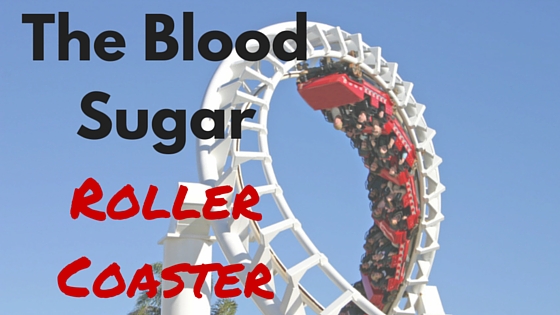From last week’s blog post, we know that sugar is highly addictive and in fact, more addictive than cocaine. So, I don’t think it is too much of a reach to say that sugar is a drug. Today, let’s dive into how your body processes sugar and some of those impacts.
When we eat balanced meals throughout the day, our blood sugar is able to maintain a homeostasis pretty easily where you really don’t feel anything. No major “hangry” moments, you have clear, focused thinking, steady energy, uplifted moods and easy sleep. This is how normal blood sugar handling supports general function within the body. Basically, when blood sugar levels are balanced, it allows the rest of the body to do the jobs they were designed to do fairly effortlessly.
Now, let’s say that you decide to eat a candy bar, bagel or can of soda. For this particular snack, there is no fat included and no protein. What happens? How does your body respond?
That first taste of the sugar hits your mouth and instantly your body starts a response knowing that it only has sugar coming and that it is going to need to figure out a way to ‘buffer’ this onslaught of sugar quickly. Then as the glucose hits your blood stream, your blood glucose numbers skyrocket past their happy homeostatic place. This means your pancreas now needs to work extra hard to send out more insulin than normal since the typical buffers of fat and protein are missing. Insulin floods your system to tell your body to store, store, store. The unfortunate part is that you only have so much reserved space for excess glucose, some of this heads to your muscles, some in your brain and some in your liver. Whatever is left, now needs to be stored as fat as this is where your body stores all excess that it doesn’t have a capacity to remove. What kind of fat is this excess glucose stored as? Triglycerides.
Now, while you have this surge of glucose in the blood stream and your pancreas is working as fast as it can to bring down the glucose levels, how do you feel? You probably feel pretty darn good. In fact, too good. Your attention might be heightened, your energy has picked up, you are awake and you feel stimulated. Dopamine has released in the brain from the excess sugar and it leaves you feeling good. So good, that you are going to keep wanting that feeling. But here is the rub, for that increased physiological alertness, focus and energy there is a price.
Once your body moves out of its homeostatic ‘happy’ place, it actually is less good at finding balance again. After having that candy bar, you had a sugar high, but as your pancreas worked furiously to remove the glucose from your blood stream, it overshot the mark. Now you are in a ‘sugar crash’. Instead of having excess glucose in your blood stream, you are highly deficient in glucose in the blood stream. The irony of this situation is that you now need more sugar to bring that blood glucose level back up because you do need some form of quick energy source to bring you back out of this scenario. So, what do you grab? Whatever is closest. Coffee, candy, chips, crackers, etc.
Now, the adrenals (your ‘fight or flight’ glands) have to kick in as low-blood sugar is ‘no bueno’. Low blood sugar is a bit more life and death to your body and your adrenals release cortisol to help your body scavage for glucose wherever it can find it. It would be hugely convenient if it went to the fat stores, but it doesn’t because the glucose in the adipose tissue is now in the form of triglycerides. Instead, your body breaks down muscle tissue to release glucose as quickly as possible to bring you back to a more comfortable level of glucose in the blood.
Once the adrenals kick in, your body is utilizing the sympathetic nervous system, which means you are on high-alert. When the body goes on high-alert, it shuts down certain functions in the body to preserve resources and focus all attention on the emergency at hand.
What functions get put on the back burner?
Digestion, hormone production, detoxification, immune function and any sort of repair or rebuilding that needs to get done. Anything that is not essential in the moment, is put on pause.
This scenario is ok, if it is a once in a very great while scenario. But, for many, this situation happens daily, if not, multiple times a day. Having to stabilize sugar and pull in extra resources to do it, all day long, leaves your body in a highly stressed state. So the question becomes, is your life stressful or is your food stressful?
Ponder this, this week and come back next week as we continue the discussion. Sugar is no simple issue.


